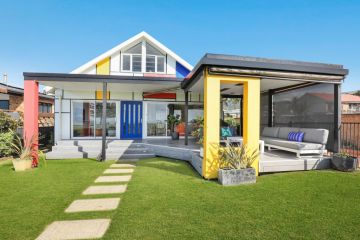The mental and physical benefits of gardening

Gardening and being in nature are known to be physically and mentally beneficial. Despite this, many of us are still not spending enough time outdoors.
A meta-analysis of research examining the effects of gardening indicated a wide range of positive improvements in social, physical and psychological health.
In the long term, these can all alleviate and prevent various health issues. For example, a bit of weeding and pruning is enough moderate activity to keep adults in good shape and, according to research from the University of Pennsylvania, light activity associated with gardening can also improve your sleep.
Numerous studies have backed this up.
“We’ve evolved to be outdoors in nature and have done it for thousands of years,” says health and wellbeing psychologist Marny Lishman. “But, over time, we’ve enclosed ourselves inside so much that many people hardly go out.”

Lishman notes that technology and a more fearful society have exacerbated this.
“Many parents want their children inside and locked in the house as it keeps them safe,” says Lishman. “But this is a cognitive shortcut that’s not very good for the mental health of the family.”
Ironically, going outside can actually help relieve this stress.
In a study from the Netherlands, participants were given a stressful task to complete before being split into two groups. One group read indoors for 30 minutes, while the other group did gardening.
Afterwards, the gardening group reported being in a better mood than the reading group, and had lowered levels of the stress hormone cortisol.

I can relate. Since my son was born, we’ve spent a lot of time outdoors. In the early days, walks with the stroller were an outlet for us both. I breathed in fresh air and a sense of sanity and he breathed in the world around him.
“Being outside is good for children in so many ways,” says Lishman. “It helps them connect with the world and fuels their imaginations. It gets them physically moving and gives them a sense of independence and purpose.”
It’s also great for instilling healthy eating habits. A Coventry University study showed the impact that school-based gardening schemes had on school children’s fruit and vegetable intake.
Over the course of 12 weeks, 46 children aged between nine and 10 created a school-based project to create a garden. Before and after the project the children completed questionnaires about their eating habits.
The results showed that children who took part in the school-based gardening project ate 26 per cent more fruit and vegetables afterwards.

All the fun aside, it’s nice to know that all this nature time is not only benefitting my son now but will continue to benefit him as he grows.
A recent study found that adults who were less exposed to natural spaces during their childhood had lower scores in mental health tests, compared to those with higher exposure.
Wilma Zijlema, ISGlobal researcher and study coordinator, highlights that the conclusions “show the importance of childhood exposure to natural spaces for the development of a nature-appreciating attitude and a healthy psychological state in adulthood”.
As he continues to grow, I hope that my son’s love of the outdoors and nature will too. I hope he’ll continue to reap the rewards that it has on offer. And who knows, maybe one day he’ll be able to revive all my dying and ill-looking plants.
We recommend
We thought you might like
States
Capital Cities
Capital Cities - Rentals
Popular Areas
Allhomes
More










